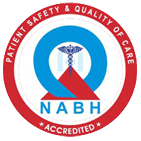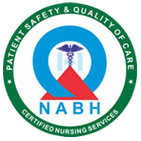FOLLOW THE MISSION HOSPITAL




Narcissism is a term used to describe a pre-occupation with the self, and on one’s own wants, needs, and desires. It is self-admiration taken to an extreme, along with a great need to be admired by others. The word "narcissism" comes from a Greek myth in which a handsome young man named Narcissus sees his reflection in a pool of water and falls in love with it, not aware that it is his own image.
NPD is one of a group of 10 conditions identified by the American Psychiatric Association as Personality Disorders. People with these disorders have patterns of thinking, feeling, behaving, and interacting that cause them distress or ongoing problems in their lives. Personality disorder patterns usually begin in the teen years or early adulthood, but may not be recognized or identified until many years later. The condition can continue for many years.
The American Psychiatric Association’s manual (DSM-5) lists the following characteristics, when occurring together, as possibly diagnostic of individuals with NPD:
People with NPD may believe they are superior or special compared to others. They are very sensitive to perceived criticism. They seem to require excessive admiration, and fail to recognize that other people also have feelings and needs. Such people may seem arrogant and snobbish, while, in reality, their self-esteem may be very fragile.
The exact cause of NPD is not known. Many professionals believe that a combination of biological/genetic factors, individual temperamental patterns, and early life experiences (such as excessive pampering or, alternately, harsh or negative parenting) contributes to the development of NPD.
The diagnosis of NPD can be made by a mental and behavioral health professional using DSM-5 diagnostic guidelines. There are no laboratory tests to diagnose any of the identified personality disorders. Instead, a careful interview and/or standardized questionnaires are used by the health care professional to obtain information, with a focus on the identification of long-term patterns of thinking, feeling, behaving and interacting that have caused ongoing distress or problems in relationships and life situations. The health care professional will determine if the key symptoms of NPD are present, while identifying and/or ruling out other mental health disorders that may be present. A medical history, physical exam and the use of various diagnostic tests—such as blood tests—are often important to rule out physical health problems as a cause of the symptoms.
There is no known cure for narcissistic personality disorder, but counseling might help the person learn to relate to others in a more positive and rewarding way. One goal of counseling is to provide the person with greater insight into his or her problems and attitudes in the hope that this will change behavior. Another goal of therapy may be to help the person develop sturdier, less inflated self-esteem and more realistic expectations of others. Medication might be used to treat the distressing symptoms, such as anxiety or sad mood that might occur with this disorder.
People with NPD could be at risk for other emotional and behavioral disorders that result from the distress and long-term difficulties in relationships that occur with the condition. They might abuse drugs and/or alcohol as a way of coping with their symptoms.
The prognosis depends on the severity of the disorder, and on the degree of commitment to identify and practice more positive ways of relating to others. Those individuals who seek help, and who work toward change, may improve their lives in noticeable ways.

A Unit Of Durgapur Medical Centre Pvt. Ltd.